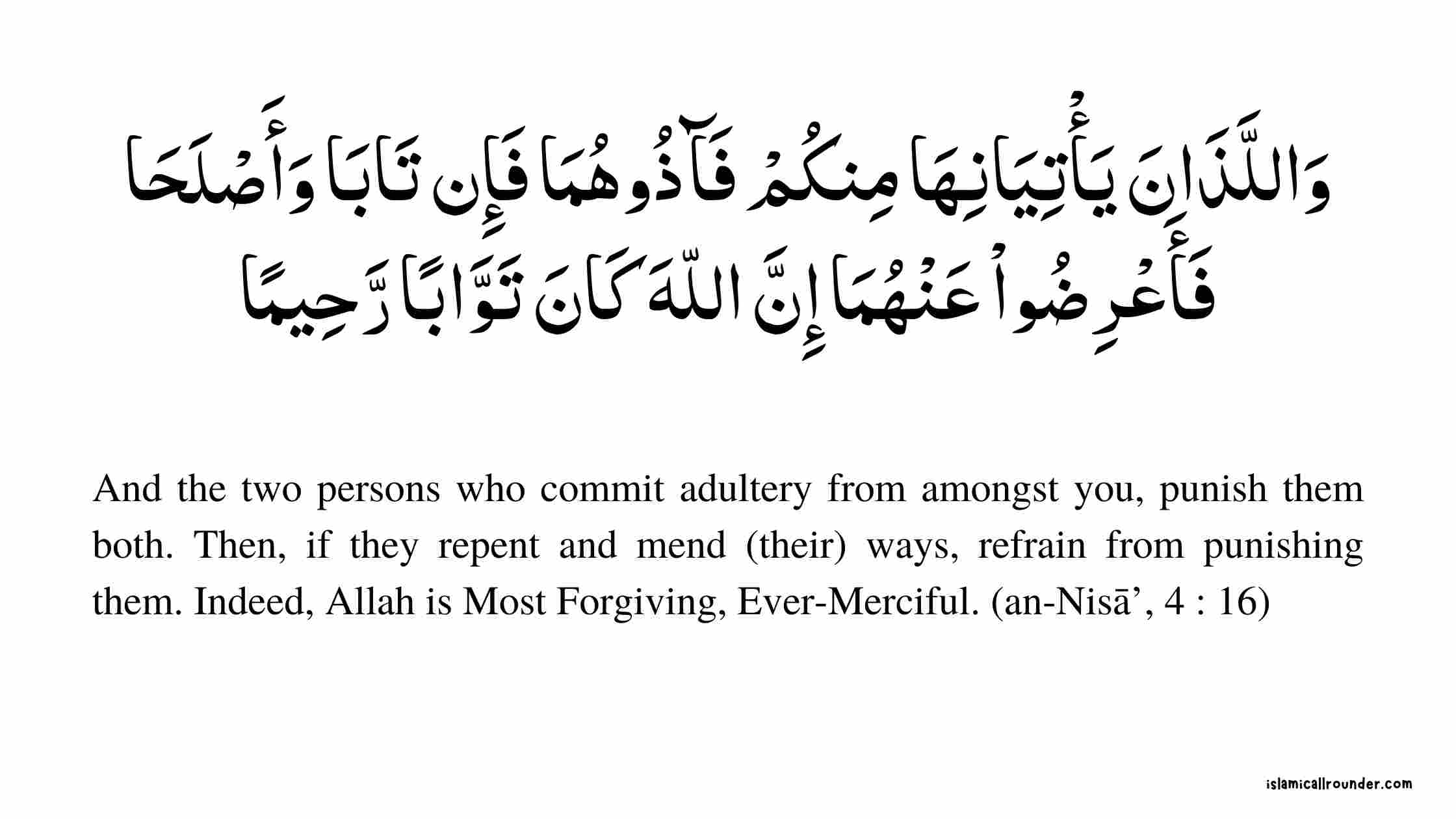Are you looking for about Punishment for Homosexuality in Islam” Religion and nation, humanity and Nature are the supporters and guardians of good morals and values Nature never accepts or likes evil, indecency, obscenity and negation, but advises to refrain from them and abandon them.
Islam is a very noble and pure religion. It teaches noble morals, high qualities, and good character, and through the physical, spiritual, emotional, and intellectual purity of individuals, it creates a righteous and ethical society. He declares modesty a part of faith and does not tolerate immorality or obscenity in any case. He recommends severe punishment for its perpetrators so that this human race lives a pure life.
In Islam, issues related to morality and ethical behavior are of utmost importance, with clear guidelines provided in the Quran and Hadith to govern the conduct of Muslims. One such topic that has sparked extensive discussion is the punishment for homosexuality in Islam. This issue is sensitive and complex, as it involves understanding the religious, cultural, and legal aspects of Islamic teachings. In this article, we will explore the Islamic perspective on homosexuality, the punishments prescribed in Islamic law, and how these teachings are interpreted and applied in different Islamic societies.
Punishment for Homosexuality in Quran
In the Holy Qur’an, it has been mentioned in several places that some previous nations were destroyed due to their disbelief, polytheism, and immorality. So that people can learn from it. One of these nations is the nation of Hazrat Lot (peace be upon him), who was entitled to the severest punishment of Allah due to disobedience to Allah, obscenity, immorality, and homosexuality.
To protect the Islamic society from such dirty, evil, heinous habits, Allah has prescribed severe punishment for the perpetrators of this crime. Allah says in the Holy Qur’an:

Abu Muslim Isfahani has described the above verse as related to homosexuality. In his opinion, the punishment of homosexuality has been described in this verse.
Punishment for Homosexuality in Islam
The Holy Prophet said: If you find people acting like Lot, then kill both. There is a difference of opinion among scholars regarding the punishment of homosexuality:
According to Imam Abu Hanifa, the punishment for homosexuality is not limited; it is easier. At the same time, Imam Abu Yusuf and Imam Muhammad were convinced of the punishment limit.
We prefer the opinion of Hazrat Imam-e-Azam Abu Hanifah, and we are convinced that homosexuality should be punished as punishment. In punishment, the ruler of the time or the court has the authority to punish the criminal to serve as a lesson to others, and no one will dare to commit this crime.
Depending on the Nature of the case, the judge may sentence the offender to life imprisonment, imprisonment, fine, deportation, or even death. Islam is the religion of Nature. The things He has ordered us to refrain from are indeed based on some practicality, some of which we are aware of and some of which we are not.
Homosexuality is also an obscene act and immorality which is prohibited by Islam and which has and will continue to have dire consequences.
Hadith and Islamic Jurisprudence
In addition to the Quran, the Hadith (sayings and actions of the Prophet Muhammad) provides further insights into the Islamic view on homosexuality. Several hadiths specifically address the issue, with the Prophet Muhammad condemning homosexual acts. However, the interpretation of these hadiths varies among scholars, leading to different opinions on the appropriate punishment for homosexuality.
Islamic jurisprudence, or Fiqh, is derived from both the Quran and Hadith and provides the framework for legal rulings in Islamic law (Sharia). Within this framework, there are differing opinions on how homosexuality should be punished, depending on the interpretation of religious texts by various Islamic schools of thought.
Punishment for Homosexuality in Islamic Law
The Classical Islamic View
Classical Islamic jurisprudence has generally viewed homosexuality as a punishable offense, with the severity of the punishment varying based on the circumstances and the school of thought. The four primary Sunni schools of law (Hanafi, Maliki, Shafi’i, and Hanbali) have different stances on the issue:
- Hanafi School:
- Generally, it prescribes a discretionary punishment ( Ta’zir ), where the judge can determine the appropriate penalty based on the context.
- Maliki School:
- Advocates for the death penalty in cases of repeated homosexual acts.
- Shafi’i School:
- Suggests that the punishment should be analogous to the punishment for adultery, which could be flogging or death by stoning, depending on the circumstances.
- Hanbali School:
- Supports the death penalty for homosexual acts, similar to the Maliki school.
Contemporary Interpretations and Applications
In modern times, applying these punishments has become a debate among Muslim scholars and communities. Some argue that the classical punishments should be upheld. In contrast, others believe a more contextual interpretation of the Quran and Hadith is necessary, considering the principles of mercy, justice, and individual rights.
In many Islamic countries, the legal systems have incorporated aspects of Sharia law, and the punishment for homosexuality can range from fines and imprisonment to the death penalty. However, in other Muslim-majority countries, homosexuality may not be explicitly criminalized, or the punishments may not be strictly enforced.
The Role of Culture and Society
Cultural and social factors also influence the approach to homosexuality in Islamic societies. In some regions, cultural norms strongly oppose homosexuality, leading to harsher punishments and more significant social stigma. There may be more tolerance in other areas, focusing on private morality rather than public enforcement.
Frequently Asked Questions (FAQs)
What is the Islamic stance on homosexuality?
Islam generally views homosexuality as a sinful act, with various Quranic verses and Hadiths condemning it. The punishment for homosexuality in Islam varies based on different interpretations of Islamic law, with some schools of thought prescribing severe penalties.
How do Islamic countries punish homosexuality?
The punishment for homosexuality in Islamic countries varies. In some countries, it is punishable by death or imprisonment; in others, the punishment may be less severe or not enforced. The legal approach often depends on the country’s interpretation of Sharia law and cultural attitudes.
Are there different opinions on the punishment for homosexuality in Islam?
Yes, there are different opinions among Islamic scholars and schools of thought regarding the punishment for homosexuality. These differences are based on varying interpretations of the Quran and Hadith as well as cultural and societal influences.
How does culture influence the punishment for homosexuality in Islamic societies?
Cultural norms play a significant role in how homosexuality is perceived and punished in Islamic societies. In regions with solid cultural opposition to homosexuality, punishments may be harsher, while in more tolerant societies, the focus may be on private morality rather than legal enforcement.
Has the interpretation of the punishment for homosexuality in Islam changed over time?
The interpretation and application of the punishment for homosexuality in Islam have evolved, with some contemporary scholars advocating for a more contextual understanding of Islamic teachings that considers principles of mercy and justice.
Conclusion
The topic of punishment for homosexuality in Islam is both complex and sensitive, involving a deep understanding of Islamic texts, cultural contexts, and legal interpretations. While classical Islamic jurisprudence prescribes specific punishments for homosexuality, contemporary discussions often explore more nuanced approaches, considering the broader principles of Islam, such as mercy and justice. Understanding this issue requires careful consideration of religious teachings, societal norms, and individual rights, making it a topic that continues to be relevant and debated in Muslim communities worldwide.
